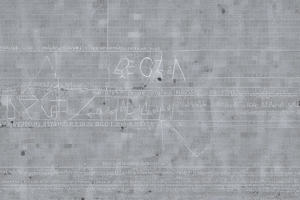Podcast
Questions and Answers
What does the Commutative Property of Addition state?
What does the Commutative Property of Addition state?
- The sum of two negative numbers is always negative.
- The sum of any number and zero equals the original number.
- Changing the grouping of addends does not change the sum.
- Changing the order of addends does not change the sum. (correct)
Which property states that adding zero to a number does not change its value?
Which property states that adding zero to a number does not change its value?
- Identity Property of Addition (correct)
- Associative Property
- Inverse Property of Addition
- Commutative Property
What is the main idea of the Inverse Property of Addition?
What is the main idea of the Inverse Property of Addition?
- It describes adding two positive numbers results in a positive number.
- It indicates that the order in which values are added does not affect the outcome.
- It states that for any number, there exists another number such that their sum is zero. (correct)
- It asserts that if a number is added to itself, the result is that number multiplied by two.
Which property states that multiplying any number by one does not change its value?
Which property states that multiplying any number by one does not change its value?
What does the Property of Zero state regarding multiplication?
What does the Property of Zero state regarding multiplication?
What algebraic expression represents '3 more than twice a number'?
What algebraic expression represents '3 more than twice a number'?
Which expression represents '9 less than the quotient of 6 and a number'?
Which expression represents '9 less than the quotient of 6 and a number'?
What is the algebraic expression for 'the product of 4 and the sum of a number and 7'?
What is the algebraic expression for 'the product of 4 and the sum of a number and 7'?
Which expression represents '8 less than the product of a number and 4'?
Which expression represents '8 less than the product of a number and 4'?
How would you express 'Twice the sum of a number and 8' in algebraic form?
How would you express 'Twice the sum of a number and 8' in algebraic form?
Flashcards are hidden until you start studying
Study Notes
Properties of Real Numbers
- Properties are rules applicable to all real numbers aiding in simplifying expressions and solving equations.
- Commutative Property: Order of addition and multiplication does not affect the result.
- Associative Property: Grouping of numbers in addition or multiplication does not affect the result.
- Identity Property:
- Additive Identity: Adding zero to any number yields the same number.
- Multiplicative Identity: Multiplying any number by one yields the same number.
- Property of Zero: Any number multiplied by zero equals zero.
- Inverse Property:
- Additive Inverse: Adding a number and its negative results in zero.
- Multiplicative Inverse: Multiplying a number by its reciprocal yields one.
Writing Algebraic Expressions
- Translate phrases into algebraic expressions:
- "Twice a number plus 5": 2x + 5
- "3 more than twice a number": 2x + 3
- "9 less than the quotient of 6 and a number": (6/x) - 9
- "The product of 4 and the sum of a number and 7": 4(x + 7)
- "8 less than the product of a number and 4": 4x - 8
- "Twice the sum of a number and 8": 2(x + 8)
Exponents, Absolute Value, & Order of Operations
- Exponents:
- Used to represent repeated multiplication.
- Base: the number that is multiplied.
- Exponent: indicates how many times to multiply the base.
- Absolute Value: The distance of a number from zero on a number line.
- Order of Operations: Follow PEMDAS (Parentheses, Exponents, Multiplication and Division, Addition and Subtraction).
Simplifying Expressions
- Simplification involves rewriting expressions into their simplest form by distributing and combining like terms.
- Terms: Elements in an expression that can be constants or include variables.
- Coefficient: The number multiplying a variable.
- Constant: A fixed value without a variable.
- Like Terms: Terms that share the same variable and exponent.
The Distributive Property
- Distributive Property: Multiply a term by each term inside parentheses.
- When simplifying expressions, always distribute first, then combine like terms to achieve the final simplified expression.
Studying That Suits You
Use AI to generate personalized quizzes and flashcards to suit your learning preferences.




